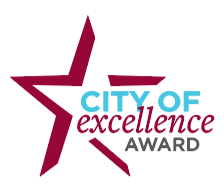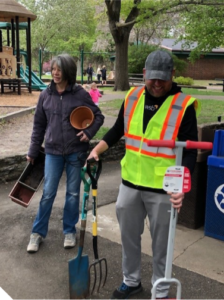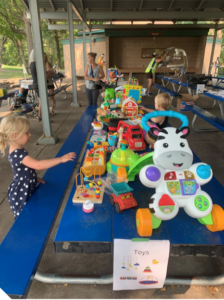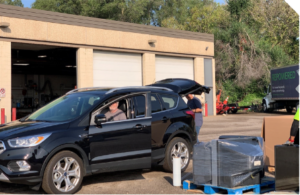Bloomington Program Recycles Bulk Items, Increases City Savings
By Andrew Tellijohn

The City of Bloomington has provided residents with opportunities to get rid of large unwanted items every spring since 1964.
It’s an extremely popular program with many of the city’s residents, and one that many people have strong feelings about, said Deanna White, chair of the Bloomington Sustainability Commission.
But the city has also increased its sustainability efforts in recent years with a focus on decreasing its carbon footprint. As part of that commitment, the commission learned through a 2019 audit that more than one-third of the items trashed during curbside cleanups could have been recycled or reused.
So, when the neighboring City of Burnsville started looking for ways to reduce stress on its landfill, Bloomington officials also started looking for an alternative.
“It’s not a sustainable program,” White said. “It’s not a program that promotes sustainability. The City Council recognized that, and they asked us to tackle finding a solution.”
Bring on BIMP

The solution came in the form of a multifaceted program that combined the previous and popular curbside pickup program with a series of new initiatives aimed at reusing items previously thrown in the landfill.
The city created the new Bulk Item Management Program (BIMP), which includes:
- Every other year curbside cleanup.
- Monthly, scheduled collection of reusable and recyclable bulky items.
- Annual recycling drop-off events open to all residents.
- Annual community swap events that, due to popularity, might become more frequent.
The remaining curbside pickup events are marketed as ways to dispose of items that are truly garbage, said Laura Horner, solid waste program coordinator.
“So, the couch that’s not in good condition to be donated anymore, those materials that can’t get reused and recycled, we still have that,” Horner said.
The new monthly pickups are conducted through a partnership with the nonprofit Better Futures Minnesota, which partners with Bridging, an organization that provides furniture for people in need. Items such as tables or couches must be in good shape so they can be recycled. Other items, like mattresses, can be either disbursed to those in need or recycled.
“We like to let people know that Bridging is always desperately in need of mattresses,” Horner said. “So, they’ll take mattresses that are still in good condition and those are then recycled.”
The swap events, which have been held annually but have been so popular they may become more frequent, have focused on particular categories of reusable items, such as baby gear or gardening tools.
“That’s open to all residents in Bloomington to either bring items they don’t want any longer or shop for items they need,” Horner said. “That’s another way we’re trying to increase the community connections.”
Rough start

The City of Bloomington was awarded a 2023 Sustainable City Award by the League of Minnesota Cities for its Bulk Item Management Program.
While feedback on BIMP is now positive, earlier versions of the program were met with significant resistance from residents.
The commission subcommittee held several community meetings and its first recommendation was to scrap the program altogether. That proposal would have given residents two vouchers for collecting the curbside items that could have been used throughout the year.
“The residents of Bloomington did not like that,” White said.
“We did not receive great feedback on that proposal,” adds Horner. “There’s lots of cultural value in the curbside cleanup that residents in Bloomington really love. We heard from residents that they wanted that part of the program to continue.”
So, back to the drawing board. “We respect that,” White said. “You put it out there, see what happens. It was a suggestion. The city leadership is committed to community engagement. So, they went out and asked, ‘So, what do you think we should do?’”
After more community meetings, online surveys, and utilizing an interactive “Let’s Talk Bloomington” feature on its website, city officials floated the new bulk item program. It started rolling out in 2022 and was citywide by mid-2023.
White credited city staff for its outreach efforts.
“They did a really robust community engagement process,” she said. “They came back to us and we took what we learned from that, what people thought was important, what people really wanted. We put our heads together.”
Council Member Dwayne Lowman has long been an advocate for sustainable practices in Bloomington, and he said the collaborative process significantly helped satisfy residents who were opposed to eliminating the original program.
“I think it’s important that folks understand the political history behind this, that this was something we were going to get rid of,” he said. “And since we got opposition, the Council said, ‘Let’s stop and think about this.’ And we did a lot of engagement, really listening to what people wanted.”
Part of larger commitment
The Bulk Item Management Program, Bloomington officials say, is part of an ongoing effort to be positive stewards of the Earth. The city has a goal of recycling or composting 75% of the waste generated in the city by 2030.
In 2022, the modified curbside cleanup resulted in 584 fewer tons of waste landfilled, 61 tons of material was recycled or reused, and the first swap event diverted 0.65 tons of gardening tools for reuse.

“BIMP is creating pathways for people to do the right thing to keep these items out of the waste stream,” White said.
Because less waste went to the landfill, the city’s costs went down, from $1.1 million to $700,000 in 2022, which saved residents money, as well.
“We wanted to bring down the cost of the program overall because that curbside cleanup can be pretty expensive,” Horner said.
Bloomington’s new program incorporates several Minnesota Green- Step Cities’ best practices including Sustainable Consumption and Waste, and Benchmarks and Community Engagement.
The League’s Sustainable City Award is presented annually to recognize sustainability efforts by a city among those participating in the GreenStep Cities program — a free, voluntary program designed to help cities meet environmental sustainability goals through the implementation of 29 best practices.
Bloomington Mayor Tim Busse said he thinks such efforts are becoming a deciding factor when people think about where to live in the future.
“This isn’t just about picking up litter and recycling more and putting things in the right bin,” Busse said. “This is about our entire environment, about our planet. We’re working hard on a number of different goals to try to achieve things that will ensure that future generations that come behind us will have a planet to live in.”
Lowman, a lifelong Bloomington resident, said the city has long been committed to environmental sustainability in general. It’s had a successful organics program and has partnered with Xcel Energy to find ways to better utilize waste and create energy efficiency for residents and businesses.
“Whether it be energy, water — our sustainability staff, they’re second to none in terms of the work they’re doing on those items,” he said.
For more information
City officials acknowledge BIMP represents a significant change. They’ve been marketing the events in the Bloomington Briefing monthly newsletter.
The city also sends an annual solid waste services guide to residents with information about all the programs available to residents. And, particularly when each event is coming up, the city has sent direct postcards, Horner said, adding that city staff also regularly attend community events, utilize social media, and update the city’s website.
“We’ve gotten pretty good feedback,” she said.
Andrew Tellijohn is a freelance writer.


